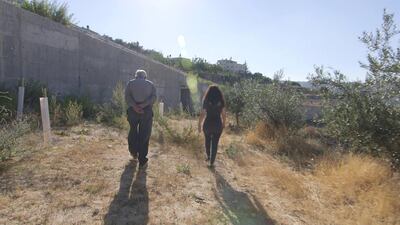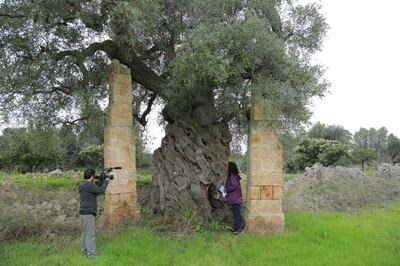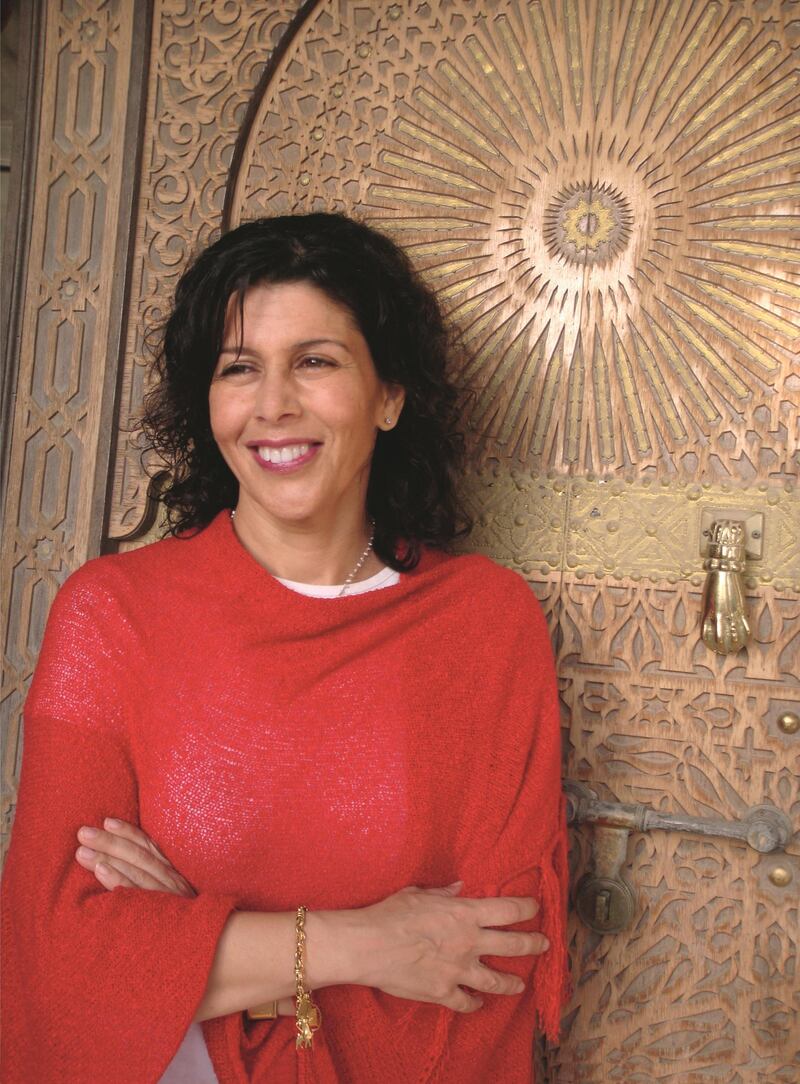Alia Yunis has her father to thank for her first foray into filmmaking. Well, him, and olive oil.
"My dad was born in Palestine and so was olive oil," says the Chicago-born, Abu Dhabi filmmaker, author and journalist. "Somewhere in that thought, the film was born."
That film is Yunis's debut documentary, The Golden Harvest, which is currently doing the film festival rounds. When her father died in 2008, Yunis says she had a hard time thinking of a moment when he was happy. Yet, as the years went by, memories began to emerge. "I rarely poured olive oil without remembering him," she explains. "Playing backgammon and testing the new batch of olive oil were how I most pictured my father genuinely joyful."
But before embarking on filming a documentary – that took her five years to make on holidays and breaks from her job as an associate professor teaching audiovisual media at Zayed University – Yunis would first realise how much olive oil mattered to other people, too. "I started to notice almost any time I talked about olive oil to anyone else with Mediterranean roots – and how could you not talk about something you used several times a day for so many things – they would jump in with an olive oil story that was also tied to family, as well as politics, science, history or health."
The Golden Harvest will have its North American debut on Saturday at the Minneapolis St Paul International Film Festival in the US. Fittingly, the movie debuted last month before a Greek crowd at the Thessaloniki International Film Festival.
“Of course the Greeks are so passionate about their olive oil that people were crying and laughing in places I didn’t expect,” says Yunis. “I think the highlight for me was when one audience member got up and announced, ‘After seeing this film, I’ve decided not to sell my father’s trees.’”

In the course of making the film Yunis travelled to five locations where the crop is pivotal: Italy, Greece, Spain, Israel and Palestine. There, olive trees not only dominate the landscape, they are a symbol of identity and family, as well as industry. And they can also represent loss and frustration, as evidenced in the scenes of Palestinian farmers who can see their trees on land that has been seized and divided, but can’t cultivate them.
Among the more than 50 people Yunis interviewed is Zefferino Monini, chief executive of olive oil giant Monini in Italy, the country most responsible for bringing olive oil to the rest of the world. "He is very open about saying Italy is the great bottler of oil – but it mostly bottles Tunisian and Spanish oil," says Yunis. "Italy doesn't have enough trees on its own to feed just the Italian need for oil, let alone the world."
While there has been a lot written about olive oil fraud, very little has been said about why it matters, beyond the obvious fact that people want to be ingesting the real thing. “I started to explore that through film,” says Yunis. “Food is a cultural identifier across the world, but with olive oil, you have a wonderful blend of science and lore, and it really is a 6,000-year-old love story.”

Before moving to the Middle East, Yunis spent years working in Los Angeles as a screenwriter and script analyst. She is a Pen America Emerging Voices Fellow, and in 2010, Random House published her novel, The Night Counter. She recently became a freelancer, leaving after a decade spent at Zayed University, where she watched local film and television production grow from its early days into a flourishing industry.
“Documentary filmmaking is something that should really be encouraged at universities, because in many ways the truth is harder to tell than fiction, but in practical terms, less cumbersome – smaller crews and no actors,” she says.
The Golden Harvest was funded through the former Abu Dhabi Film Festival, Zayed University and private donations. Even after gathering 80 hours of footage, there are so many other angles to the olive oil story that Yunis wouldn't mind tackling a podcast – named "Olive" – that would explore the industry and culture in further flung countries such as Australia, Brazil, Japan and even China.
She has a distributor, and is seeking to have the film streamed regionally, too. “There are also really cool stories from Mediterranean countries like Albania, Slovenia and, of course, North Africa that really need to be told,” she says.
If there was something a viewer were to take away from the film – other than that as with so much else, even something as simple as olive oil is steeped in emotion – Yunis hopes it might be how intimately we are connected to nature.
“The olive tree is exceptional because it provides for food, furniture, shelter, fire, shade, religious ceremonies, beauty products, cleaning products and medicines, and ultimately, for the owners of the trees, proof of existence,” she says.
“But all plants connect us to the ground beneath us, and understanding that gives us roots to grow, too.”






